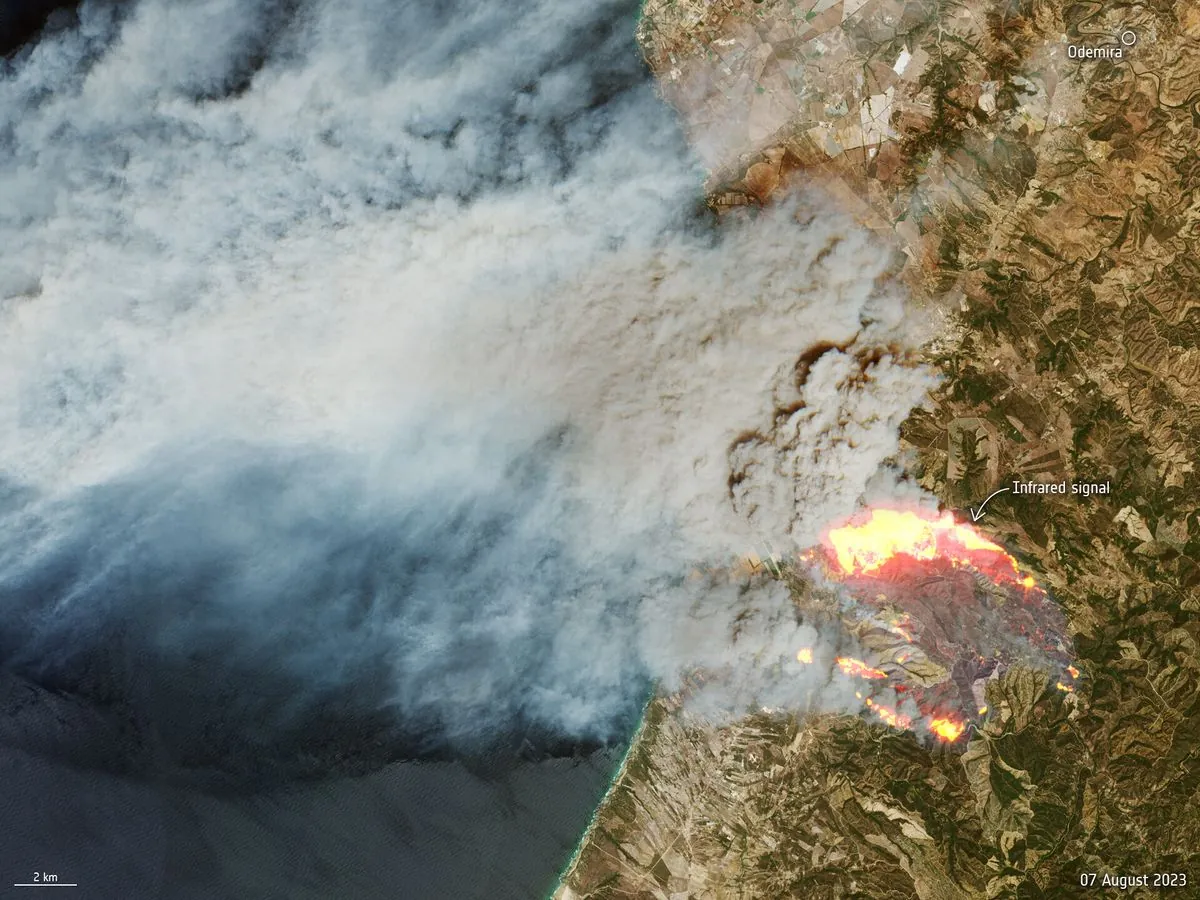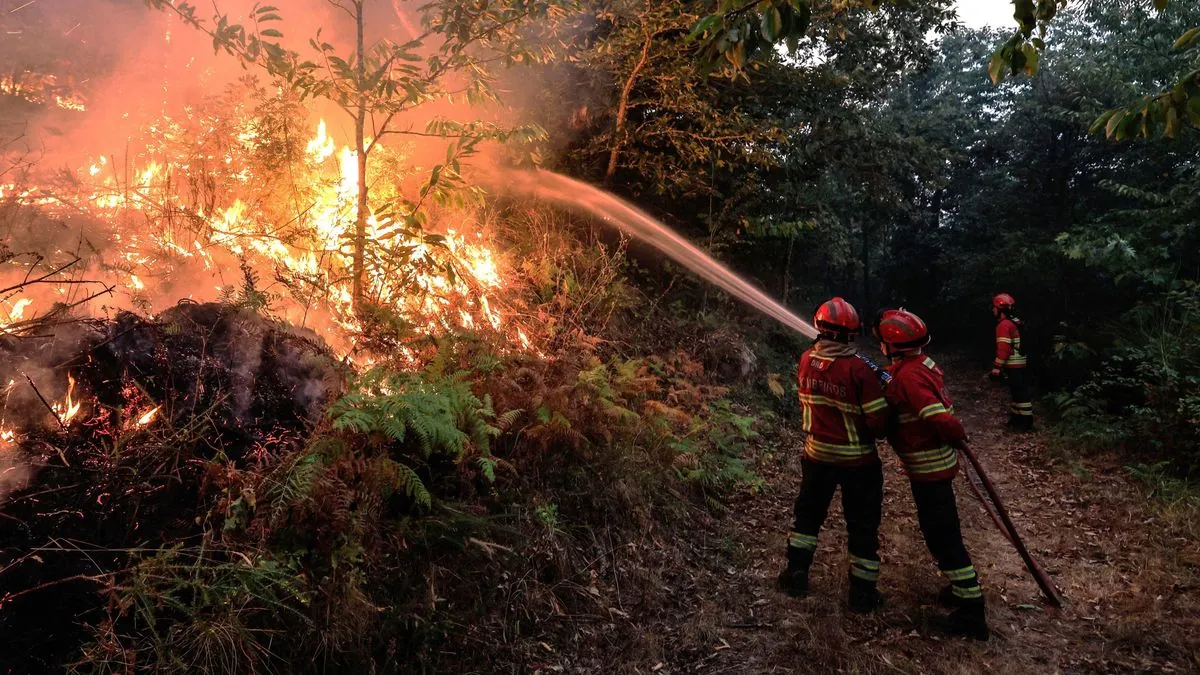Portugal Battles Over 100 Wildfires, Declares State of Calamity
Northern Portugal grapples with widespread wildfires, resulting in seven fatalities. The government declares a state of calamity, mobilizing resources and receiving international assistance to combat the crisis.

Northern Portugal is currently facing a severe wildfire crisis, with over 100 blazes stretching firefighting resources to their limits. The situation has escalated since the weekend, resulting in seven fatalities and prompting the government to declare a state of calamity in the most affected areas.
Prime Minister Luís Montenegro announced the emergency measure on September 17, 2024, enabling the mobilization of additional firefighters and civil servants. In a televised address, he stated, > [[Prime Minister Luís Montenegro]] "We are well aware that these difficult hours are not over yet. We have to continue to give everything we have and ask for help from our partners and friends so that we can reinforce the protection of our people and property."
The crisis highlights Portugal's vulnerability to wildfires, a recurring issue in the country with one of the highest percentages of forest cover in Europe. Climate change is expected to exacerbate this problem, increasing the frequency and intensity of such events.
In response to the emergency, fellow European Union members Spain, France, Italy, and Greece have each committed two water-dropping aircraft to assist Portuguese firefighters. Spain is also sending 240 soldiers and vehicles from its specialized emergency response battalions to help combat the fires across the border.

The district of Aveiro, south of Porto, has been particularly hard-hit, with several major blazes raging out of control in wooded areas. While official figures on property damage and evacuations are pending, local media have shown images of charred houses in rural villages and residents attempting to fight flames with limited resources.
Tragically, three firefighters lost their lives in their vehicle on September 17, adding to the death toll that includes another firefighter who succumbed to a "sudden illness" while on duty over the weekend, and three civilians.
The Portuguese government has implemented strict measures to prevent further outbreaks, including prohibiting the use of heavy farming equipment. Authorities have also arrested seven individuals suspected of starting wildfires in recent days, with Prime Minister Montenegro calling for increased efforts to apprehend both arsonists and those who may have inadvertently caused fires through negligence.
This crisis brings back memories of the devastating fires in 2017 that claimed over 120 lives. Experts attribute the recurring wildfire problem to a combination of factors, including climate change and the abandonment of traditional farming and forestry practices that previously helped maintain rural areas and reduce fire risk.
Portugal has been actively working to address these challenges through various initiatives. The country has implemented a national fire prevention and firefighting strategy called "Safe Forest" and invested in advanced fire detection and monitoring systems. Additionally, efforts are underway to develop fire-resistant building materials and construction techniques to better protect communities in fire-prone areas.
As Portugal continues to battle this latest wildfire crisis, the situation underscores the importance of international cooperation in firefighting efforts and the urgent need for comprehensive strategies to mitigate the impact of climate change on forest ecosystems.


































